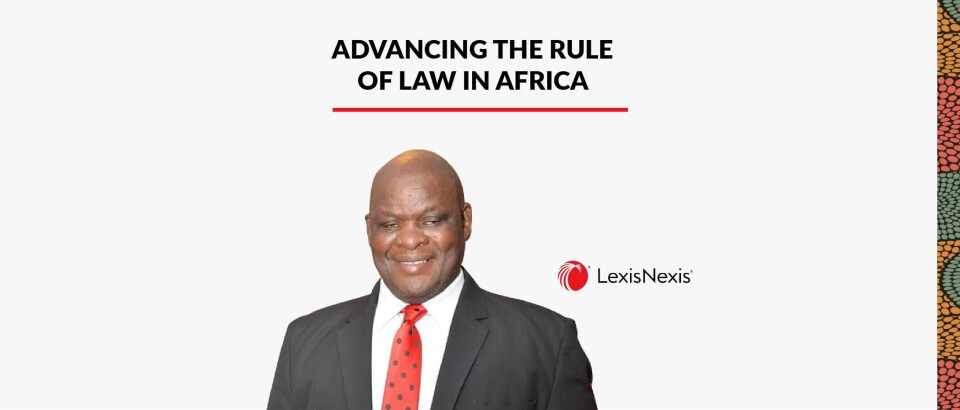Copyright : Re-publication of this article is authorised only in the following circumstances; the writer and Africa Legal are both recognised as the author and the website address www.africa-legal.com and original article link are back linked. Re-publication without both must be preauthorised by contacting editor@africa-legal.com
Justice inspired: Leading the Guardians

In the final feature of a six-part series showcasing champions of the rule of law in Africa, International Bar Association (IBA) President, Sternford Moyo, told Craig Sisterson that lawyers really should view themselves as the guardians of the rule of law.
“Without an independent legal profession it is virtually impossible to speak of the rule of law being observed,” said Moyo, chairman and senior partner of Zimbabwean firm Scanlen & Holderness and the first African president of the IBA.
While discussions about the rule of law often focus on equality before the law, access to justice, and an independent judiciary, Moyo stresses that the broader legal profession – individually and collectively – needs to see itself as key to the rule of law.
“It is not just about the observance of the law,” he said, “because we’ve seen instances where the law itself has been used as an instrument of oppression. You’ve got to look at the quality of the law. It has to be infused with human rights and democratic values.”
An independent legal profession is vital to support an independent judiciary and control any excessive use of discretionary powers by the executive or legislature, says Moyo who wrote his dissertation on the subject and litigated substantial human rights cases as a young lawyer.
He was a founding member of Zimbabwe Lawyers for Human Rights, helped establish the SADC Lawyers Association, and was co-chair of the IBA’s Human Rights Institute.
The mechanism for controlling government excesses or a legislature that’s gone outside its constitutional framework is litigation, continued Moyo, and it’s up to an independent legal profession to act and litigate in order to have such unlawful actions struck down.
“It is particularly important in today’s societies where you find that legislatures are in most cases dominated by members of the ruling party. So you can’t really expect Parliament to protect the people – it is the lawyers who have that responsibility.”
That responsibility may be shouldered by individual lawyers or firms in particular cases, or the profession collectively. “There are many instances where the Bar Association has been the litigant, showing it has a real and substantial interest in the subject matter.”
Human rights and the rule of law are at the forefront of the work of the IBA, said Moyo, who encourages lawyers to get involved as advocates for the rule of law. Lawyers can embark on educational campaigns to make concepts such as the rule of law understandable for everyday people, collectively use their voices nationally and internationally, and even partake in rapid response interventions where the rule of law or human rights are threatened.
Lawyers must work hand-in-hand with an independent judiciary, says Moyo. Without independent judges “you can’t really be sure that unlawful actions by the executive, and excessive acts by the legislature will be struck down as unlawful and null and void”, he clarified.
“I always say that you really can’t expect clean fish from a sewage pond. If the legal profession is not okay, then it is very likely the judiciary will not be okay.”
To read the full Rule of Law Report, CLICK HERE
To join Africa Legal's mailing list please click here
